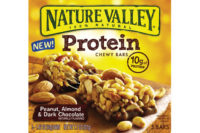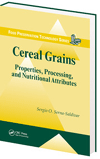Breakfast Beginnings
Breakfast is widely regarded as the most important meal of the day, and manufacturers are providing nutritious, flavorful options to start the day.








The message may have gotten through to consumers about the importance of breakfast to overall health. A continued focus on the daypart is expected to spur the packaged breakfast baked goods market to sales of $5 billion by 2017, according to “Packaged Breakfast Baked Goods: U.S. Market Trends.” The Packaged Facts report, which includes bagels, donuts, croissants and English muffins in its definition of breakfast baked goods, cites health concerns and a desire for convenience and portability as key driving forces influencing product developers in this particular arena.
The demand for more nutritious products has compelled manufacturers of English muffins and bagels, in particular, to reformulate their products to reduce sodium, sugar and fat. They also are delivering more natural, organic gluten-free and high-fiber options.
As the Packaged Facts report notes, “Whole-wheat, whole-grain and multi-grain products, particularly bagels and English muffins, are filling shelves, and manufacturers continue to use ingredients that both deliver benefits many consumers have to come expect and help differentiate one brand from another.”
Likewise important in breakfast foods, perhaps even more than other dayparts, the role of convenience cannot be overestimated. Packaged Facts reports manufacturers are responding to these demands, as well.
“More convenient products are especially important for breakfast, since many people eat on the run, in the car or in the office. Manufacturers have responded for quite some time with single packs, minis and bite-size products and other items to make breakfast easier. They are trying to compete with breakfast and nutritional bars, handheld breakfast sandwiches, and other portable options,” states the report.
For its part, the Thomas’ brand is turning to flavor varieties to bolster consumer interest in its products. The company has announced its flavor of 2014 will be Cinnamon Vanilla. Inspired, the company notes, by “fresh cinnamon buns straight out of the oven” and promising 150 calories, Thomas’ Cinnamon Vanilla English Muffins are part of the company’s new limited-edition line, which will include different seasonally inspired flavors nationwide every three months. Through July, consumers will see Cinnamon Vanilla English Muffins and Maple French Toast Bagels, while July through October will add Apple Pie English Muffins and Bagels. The year’s final three months see Cranberry English Muffins and Bagels hit store shelves.
The addition of the French Toast Bagels, the company says, is a direct response to research finding consumers looking for sweet flavors at the breakfast table. A 2013 Technomic report (“Dessert Consumer Trends”) revealed dessert consumption is on the rise, as consumers increasingly turn to sweeter, more dessert-like flavors earlier and earlier in the day. In some respects, Thomas’ notes, the new products are a direct contradiction to the quicker-paced products that permeate the marketplace.
“People often rush to make and eat breakfast, and we wanted to give them more reasons to slow down and enjoy,” says Alicia Rosas, category director at Thomas’ Bagels.
Slower and more relaxed in no way describes a new entry from Kellogg Company. In launching its Eggo Bites, the company surveyed moms and found a third of them describe their morning routines as a “travelling circus.” In fact, 37% of surveyed mothers chose that descriptor for their morning routine, with 22% opting to compare their morning to a fire drill in a movie theater, and 20% describing it as an intense cardio workout.
“Moms have a tough job getting their kids ready for the day, and on some of the crazier mornings, the opportunity to serve a sit-down breakfast just isn’t there,” explains Andrew Loucks, president of Kellogg’s Frozen Food. Eggo Bites are microwaveable, portable pouches of bite-sized, flavored waffles or French toast.
Consumers looking for a hot breakfast are also finding a pair of new options from the Jimmy Dean brand’s Pancake & Sausage on a Stick portfolio. Apple Cinnamon Pancakes & Sausage on a Stick and Very Berry Pancakes & Sausage on a Stick combine Jimmy Dean sausage wrapped in a sweet, fruity pancake.
Tyson Foods also has joined the breakfast brigade with a new line of breakfast items. New Tyson Day Starts frozen breakfast sandwiches offer protein-rich meals and such ingredients as real cheese, vegetables, eggs; and Tyson proteins, including sausage, ham and chicken. Day Starts breakfast sandwich options range from a classic sausage, egg and cheese biscuit to a twist on breakfast staples, like wrapped cheese omelets or bacon, egg and cheese flatbread sandwiches. The sandwiches, the company notes, are made with wholesome fresh eggs, natural cheeses, all white-meat Tyson chicken, and have up to 27g of protein per serving. Tyson Day Starts breakfast sandwiches are available in seven varieties: Southern Style Chicken Biscuit; Sausage, Egg and Cheese Biscuit; Natural Colby and Monterey Jack Cheese Crispy Wrapped Omelet; Ham, Onion and Green Pepper Crispy Wrapped Omelet; Egg, Bacon and Colby Jack Cheese Flatbread; Egg, Sausage and Colby Jack Cheese Flatbread; and Ham, Egg, Cheese, Onion and Green Pepper Flatbread.
Cereal Experience
As for breakfast cereals, innovation has been there, even if sales may not have followed suit. Overall sales for the segment remained flat in 2013, but growth in such market segments as granola represents a bright spot. Take General Mills, for instance: Through last November, the company noted its granola sales were up 17% year-to-date, with its Nature Valley Protein Granola Cereal on pace to surpass $30 million in annual sales. The Nature Valley product actually capitalized on a couple of distinct trends: the emergence of granola and the continued strength of protein in the eyes of consumers.
Datamonitor’s “2013 Global Consumer Survey” reports 29% of U.S. consumers are trying to consume “as much protein as possible.” Interestingly, that is the same percentage of Americans looking to incorporate whole grains—and far more than those looking to add calcium (24%) and omega-3s (21%).
In its 2014 survey of American consumer perceptions and behaviors, the International Food Information Council (IFIC) Foundation assessed consumer opinions of which nutrients or food components they are trying to limit or increase. Fiber led the pack, with 53%, but closely behind was protein (50%), with calcium, omega-3s, potassium and probiotics trailing further behind (with 36, 21, 19 and 18%, respectively).
What is prompting the interest in protein? Datamonitor contends it has something to do with muscle-building and satiety, a pair of benefits in high demand among consumers. General Mills was quick to capitalize on the protein interest, noting the Nature Valley product had “more than twice the category average” of protein. Post Foods LLC likewise promoted the power of the protein in its Honey Bunches of Oats Morning Energy, an entire line of cereals promising whole grain and fiber, in addition to protein. The two varieties (Cinnamon Crunch and Chocolatey Almond Crunch) provide 33-35g of whole grains, 5g of fiber and 10g of protein per one-cup serving.
Post has also gotten a bit more functional with its launch of Great Grains Digestive Blend cereals, which promise the whole grains and natural fiber common to all Great Grains varieties, but now add active cultures.
“Research shows nine out of 10 Americans are not getting enough fiber in their diets,” explains Mark Izzo, vice president of Research, Development and Innovations at Post. “We developed Great Grains Digestive Blend cereals with fiber, active cultures and more than 85% of the daily recommended amount of whole grains per serving—three key ingredients to help support digestive health and help people feel more balanced from the inside out.”
Digestive Blend is available in two varieties: Berry Medley features active cultures and oat clusters and is made from whole-grain barley, multi-grain flakes and real berry juice. Each one-cup serving is an excellent source of fiber (7g), a good source of iron and contains 43g of whole grain per serving. Vanilla Graham contains flax seed and active cultures, as well as whole grains and fiber from wheat and barley, rolled oats, multi-grain flakes and clusters, and each one-cup serving is an excellent source of fiber (7g), a good source of iron and contains 41g of whole grain per serving.
Protein Pros
“When it comes to breakfast, consumers are looking for options that provide protein, fiber and whole grain to satisfy their appetite and help reduce mid-morning hunger,” explains Derek Schwendinger, marketing director, Honey Bunches of Oats, at Post Foods LLC. The company also leveraged protein’s power in its Post Grape-Nuts Fit Cereal, which promised 5g of fiber and 6g of protein per 2/3-cup serving.
Not that protein inclusion is solely the domain of Post Foods. Far from it: Kellogg has introduced Special K Protein Cereal (promising to be a good source of fiber at 3g—and 8g or more of whole grains per serving, as well as 10g of protein). One of Kellogg’s more recent offerings, however, manages to incorporate the yogurt trend into a cereal concept.
Along with YoCrunch, Kellogg Company has introduced the YoCrunch Cereal Bowl, which the companies describe as “the most significant innovation in the yogurt category since the introduction of Greek yogurt.” Marketing aside, the product combines such Kellogg’s cereal varieties as Frosted Flakes, Froot Loops and Special K in the dome-shaped top of a package, with YoCrunch’s yogurt in the bottom portion.
“Nearly two thirds of yogurt consumers are already adding toppings to their yogurt, with cereal and grains second in popularity only to fruit,” notes Elliot Shifrin, senior brand manager at YoCrunch.
“By creating an all-in-one food, we can drive usage occasions for both yogurt and cereal,” adds Steve Platt, chief marketing officer with YoCrunch. “This powerful brand partnership and unique new design will drive further growth for our customers by expanding both categories.”
The opportunity for breakfast makers is definitely there, explains The NPD Group.
“With over 3 billion occasions in the U.S. annually, carrying breakfast from home is a sizeable behavior representing a significant opportunity for manufacturers and retailers,” says Darren Seifer, food and beverage industry analyst. “Adults are looking for nutritious, easily portable breakfast foods and beverages that they can have on hand. Marketers need to take a closer look at these consumers and make sure their needs are being met with current offerings.”
Looking for a reprint of this article?
From high-res PDFs to custom plaques, order your copy today!





